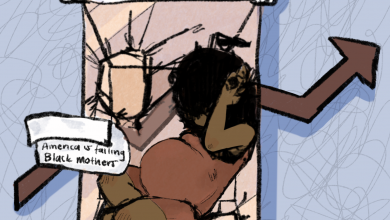HHC v. Talevski, Medicaid, and the Future of Public Health Programs

Source: joe daniel price via Getty Images
Image description: A graphic with a light green background, a white rectangle in the middle containing a photo of the Supreme Court Building, and “HHC VS Talevski and the Future of Medicaid” written in dark green text on top of the photo.
On November 8th, 2022, the Supreme Court began listening to oral arguments on a case that could change the current state of health care as we know it. Health & Hospital Corporation of Marion County (HHC) v. Talevski raises two critical issues. First, are Medicaid beneficiaries legally allowed to seek relief in federal court when they believe their civil rights have been violated by state officials, and are such rights determined by the Nursing Home Reform Act? Second, should enforcement of state complacencies for federal programs such as Medicaid be left to the Center for Medicare and Medicaid Services (CMS)? While this case focuses on state vs. sovereignty regarding compliance and compensation issues, the result could have dangerous implications for other federal programs that rely on the state’s aid to administer them. Such implications include lower quality of care in hospitals and medical facilities for Medicaid beneficiaries and worsening health disparities for marginalized communities.
Background
In 2019, Ivanka Talevski filed a lawsuit against the state of Indiana on behalf of her elderly husband with dementia. The lawsuit alleged that the nurses in her elderly husband’s skilled nursing facility, Valparaiso Care and Rehabilitation (VCR), violated her husband’s civil rights. The facility is owned and operated by the Indiana defendant Health and Hospital Corporation (HCC). Talevski contends that “he went from being able to walk and talk … to not being able to move.” Moreover, Talevski argues that her husband was subjected to psychotropic drugs as chemical restraints, improperly discharged, and transferred against his will. She also claims that these acts violated the Federal Nursing Home Reform Act (FNHRA), contending that the nursing facility failed to provide adequate care for her husband and did not adhere to the standards of care as established by FNHRA.
Talevski argues that her husband’s death was imputable to inadequate care and a violation of his rights. As a result, Talevski is suing Health and Hospital Corporation of Marion County, a public health agency in Indiana, using federal law, also known as Section 1983. VRC vehemently denies any allegations of abuse or mistreatment, contending that George Talevski was an aggressive patient and required psychotropic drugs (chemical restraints) for staff to engage with him safely.
Arguments
Talevski’s family argues that “FNHRA’s rights against chemical restraint and involuntary discharge and transfer are enforceable under Section 1983” and that “an adverse ruling would be disastrous for federal safety-net programs.” Initially, Talevski’s case was dismissed in a federal district court, and the judge ruled that Medicaid enrollees cannot enforce the FNHRA. However, the Talevski family filed an appeal, and the Seventh Circuit of Appeals reversed the federal district court decision allowing the Talevskis to resume their case.
HHC urges the court to override a series of precedents, such as Wright V. Roanoke Redevelopment and Housing Authority and Wilder v. Virginia Hospital Association, that have held that spending clause statutes are enforceable through Section 1983. The spending clause grants Congress the power to “lay and collect Taxes, Duties, Imposts, and Excises, to pay the Debts and provide for the common Defense and the general Welfare of the United States.” The purpose of the spending power clause is to ensure Congress spends money on the welfare of Americans, states are able to accept or deny funds, and all spending must be related to the federal interest in nationwide programs or projects. As the National Health Law Program states, Section 1983 is written in plain language and clearly protects “any rights” under the “Constitution and laws.” However, HHC argues that Congress did not explicitly include Section 1983 liability as a condition in Medicaid expenditures, so private suits are not applicable.
Furthermore, HHC contends that the previous precedent conflicts with Gonzaga University v. Doe and Blessing v. Firestone. In these cases, private suits based on violation of rights require that the statute in question explicitly states the enforceable rights. HHC argues that the Nursing Home Reform Act does not do that, so Talevski’s private suit would conflict with those precedents and is not permissible. Ultimately, HHC’s primary goal is to push the Supreme Court to strip Medicaid patients of their ability to bring forward private lawsuits regarding civil rights violations.
Why does this matter?
Medicaid is a social safety net designed to protect our most vulnerable populations and ensure Americans have access to health insurance, even if they cannot afford it. It serves low-income families, individuals with disabilities, and the elderly. Medicaid provides prenatal care and maternal health coverage for expecting parents, speech and occupation therapy, community-based care, and home care assistance. If the court sides with the defendant, this ruling would prohibit public health benefit (Medicaid, Medi-cal) enrollees’ ability to sue in federal court when their civil rights have been violated. Even worse, some Medicaid enrollees could lose their coverage completely. Medicaid is a “conditional grant” program; states can only receive the funds if they agree to provide health care to eligible recipients and comply with other criteria. The criteria for Medicaid programs are extensive and aim to protect a variety of demographics (pregnant patients, children, elderly, etc.). If states are out of compliance, the government can reduce Medicaid funding for the state by withholding it completely, especially if patients no longer have an avenue to incite change in non-compliant states. Medicaid provides health care coverage to 76 million low-income Americans. Additionally, more than 50% of Medicaid beneficiaries identify as people of color, and over 60% of Medicaid beneficiaries under the age of 60 are women. Taking away the limited health care coverage available to our most marginalized communities would have serious ramifications for health care as we know it.
While the federal government would still have ways to “discipline” non-compliant states, if the Supreme Court sides with HHC, the likelihood of states receiving a real consequence is practically non-existent. Most Medicaid recipients are low-income people of color with no other options for health insurance, so, when the federal government cuts funding, they’re punishing the people who need it most. Many patients complain of poor health care, longer wait times, and general frustration with the system. Cutting funding may punish the state, but it will also exacerbate the issues faced by Medicaid patients.
With a looming recession and health disparities increasing by the minute, American public health cannot withstand another critical blow. If the Supreme Court rules in favor of the defendant, the ramifications of this abhorrent outcome will affect the lives of millions of Americans. This case will reveal where the Supreme Court stands on health care and preventable fatalities.
If the court sides with HHC, this case could overturn 50-plus years of judicial precedent and illustrate the grim future of health care and public health in the United States. Although the defendant’s legal arguments are not the strongest, some judges have indicated that they have been swayed. Some Justices, such as Samuel Alto, Neil Gorsuch, and Clarence Thomas, have indicated that they are more than prepared to rule in favor of HCC. The ruling of this case could overturn over five decades of judicial precedent and undermine “congressional intent that individuals are able to use federal courts to enforce rights under federal programs.”
Opposing counsel contends that if the court rules in favor of the plaintiff, Talevski, private cases regarding civil rights can upset the dynamics of state and federal administration of grant programs. However, the plaintiff argues millions of Americans could be at risk of inadequate medical coverage due to limited capacity and funding. Talevski and supporters like the National Health Law Program (NHeLP), AARP, American Cancer Society, and others argue that this decision could limit the ability of individuals to sue in federal court and deprive millions of Medicaid enrollees access to care, including at-risk children who are entitled comprehensive coverage under Early and Periodic Screening, Diagnostic, and Treatment (EPSDT), those with chronic conditions, fatal diseases, and people with disabilities.
Ultimately the court’s decision will affect the rights of millions of low-income Americans who rely on spending clause programs beyond Medicaid and health coverage. As of February 13, 2023, the case is ongoing.



